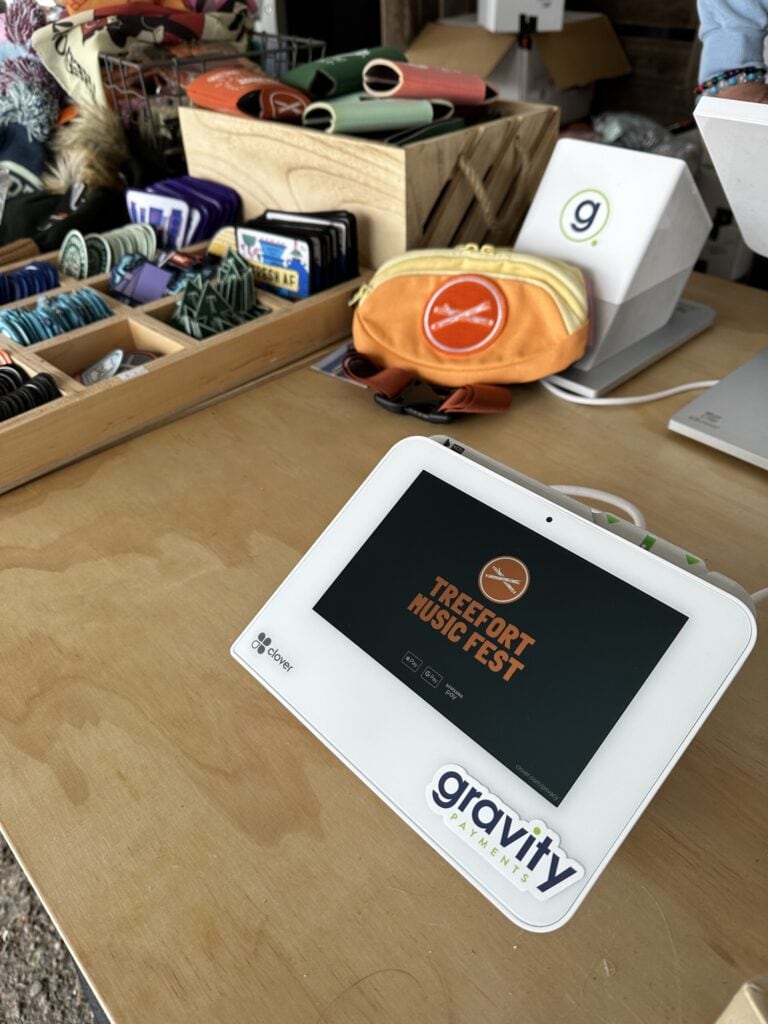 On the first episode of Silent Superheroes, the podcast created and hosted by Gravity’s VP of People Development James Pratt, we hear the story of Amanda, a mother in her forties who has bipolar I disorder. In explaining what it’s like to be bipolar, Amanda describes the time when, in the middle of a manic episode, she almost committed suicide while her two-month-old daughter slept in the next room. The New York Giants had just won the Super Bowl and Amanda, who was living in New York at the time, was ecstatic. “In our apartment there was this teeny little fake patio, and I was so happy,” she recalls. “I was like ‘This is the pinnacle of my life!’ And I went and I stood out there, and I was like, ‘I could jump.’” It was only after she considered how angry her husband, who was out of town, would be if she killed herself, that she came back inside.
On the first episode of Silent Superheroes, the podcast created and hosted by Gravity’s VP of People Development James Pratt, we hear the story of Amanda, a mother in her forties who has bipolar I disorder. In explaining what it’s like to be bipolar, Amanda describes the time when, in the middle of a manic episode, she almost committed suicide while her two-month-old daughter slept in the next room. The New York Giants had just won the Super Bowl and Amanda, who was living in New York at the time, was ecstatic. “In our apartment there was this teeny little fake patio, and I was so happy,” she recalls. “I was like ‘This is the pinnacle of my life!’ And I went and I stood out there, and I was like, ‘I could jump.’” It was only after she considered how angry her husband, who was out of town, would be if she killed herself, that she came back inside.
Amanda is just one of the adults struggling with mental illness whom James has profiled on the podcast. Each forty-five-minute episode follows the story of a different person. There’s Jared, a systems engineer struggling with ADHD and depression who has to decide whether to take his medication and feel nothing or not take it and feel sad. There’s Rachel, whose childhood was “cursed” by family members who struggled with mental illness and whose adulthood has been marred by anorexia and depression. And then there’s James himself, whose own experiences with bipolar disorder and encounters with others battling mental illness led him to develop the podcast.
When asked when he began to show signs of mental illness, James can’t provide an exact answer, but he knows symptoms began to manifest long before his diagnosis. Bipolar typically shows up in one’s teens or early twenties, and James recalls times in college when his undiagnosed bipolar was “obviously raging.” It wasn’t until he was well into his career, however, that his extreme swings in mood and behavior started causing serious problems in his personal and professional life.
Get the Gravity newsletter for the latest FAQs, tools, tips and tricks
From the outside, things looked great. He was in his mid-thirties with a well-paying and exciting job at the mobile-technology company HTC. He was married with two kids and owned a home in a desirable Seattle neighborhood. “I had all the things on the outside that one often associates with success,” he says.
But behind the shiny exterior, James was silently suffering. “I put an intense amount of pressure on myself to maintain that exterior, and that view, and to keep being successful, and to keep getting promoted, and keep climbing up the ladder that we all think that we should climb,” he says. At the same time, he was becoming increasingly aware of certain differences between him and his colleagues. “I would have times where I was very energetic, and able to get a lot of work done, and very focused, and work felt like it came very easy. And then I had these times where it was much harder for me to just function, like getting even basic things done seemed to become really, really difficult. The tension in my head would be like, ‘Well, why can’t I always operate in that high energy, creative, focused, organized way?’”
For most of his life, James had managed these ups and downs well. He chalked his inconsistency up to a unique working style that, while not ideal, had helped him be successful so far. His perspective changed dramatically one morning in July 2012 when he woke up in the hospital with no memory of the previous few hours. He remembered getting into an argument with his wife the night before and leaving the house in a fit of frustration to go drinking by himself. He stayed out until after the bars had closed and tried to make his way home on foot before falling over in someone’s garden and impaling his leg on a metal spike. By the time he made it home, he was a complete mess with a blood-alcohol level more than four times higher than the legal driving limit in Seattle. His wife called 911, and he remembers being transported to the hospital before everything went black.
When he came to the next morning, someone on staff asked him a question that would change his life: “Do you think you were trying to hurt yourself?”
Up until that point, James says, he’d always considered his pattern of heavy drinking to be, at worst, irresponsible and unhealthy. “It just felt like I’d gone a bit far, like I had drunk too much,” he says. “But I paused for a second and I thought about all that anger that I’d had while I was drinking, and I realized that that’s exactly what I’d been trying to do. I had been trying to drink myself to a point where I didn’t have to deal with life anymore. And I’d come pretty close.”
After that, he embarked on a journey of self-exploration and healing. He started attending AA meetings, got sober, and connected with a therapist who helped him explore his childhood and emotions. He started a regular meditation practice and found a new way to connect with and support those around him, especially his wife and daughters. For two years, things were going extremely well and James thought he’d gotten his life under control. But in late 2014, things once again took a turn for the worse. “I found myself again in a very bleak space where I was frequently thinking about suicide,” he says. “I was having a hard time believing anybody around me. I thought my wife rarely cared about me. I just didn’t want to be with people.”
This time it was his therapist who said words that would change James’s life for a second time. “‘We’ve been working together for a while and we’ve been here before, where you’re in a very dark place,’” James recalls his therapist telling him. “‘You’ve been working so hard. You’re doing so well. I just think there’s something else going on that’s worth exploring.’”
The therapist connected him with a psychiatrist who, after an evaluation, diagnosed James with bipolar II disorder. Like bipolar I, bipolar II is characterized by prolonged periods of mania followed by prolonged periods of depression. Mania manifests as extreme amounts of energy and euphoria. While those experiencing mania can be extremely creative and productive, they are also prone to risky behaviors like drug use, promiscuous sex, gambling, or other dangerous activities. Bipolar II patients tend to experience less extreme manic episodes–typically referred to as “hypomania”–than those with bipolar I, but they are more prone to depression and can sink into a depressive episode so severe that it may impair their ability to take care of even basic tasks like getting out of bed, showering, or eating. Unsurprisingly, those experiencing bipolar depression often have difficulty functioning at work.
All of a sudden, pieces began to click into place as James realized his erratic behavior at work was not just a quirk of his personality but an expression of his previously undiagnosed mental illness.
“Suddenly I understood the behavior that I couldn’t previously explain,” he says. “I couldn’t explain why I was able to work really well sometimes but couldn’t work at other times. It was because I was in hypomania, or I was in depression, or somewhere in between. I couldn’t explain why I felt like I needed to drink so much, and it was because I was self-medicating and trying to deal with emotions that I couldn’t explain and were causing a lot of cognitive dissonance.” He adds that it’s very common for people with bipolar II to abuse drugs and alcohol or become addicted to things like sex or gambling.
Armed with a diagnosis, James was better able to understand what he needed to do to regulate his behaviors and emotions. He started taking medication and adapting his life to avoid or limit things that triggered hypomania or depression. For example, James knows that if he starts to feel depressed, it’s best for him to spend time alone rather than with others because socializing drains his energy and can make the depression worse.
He’s also learned that being honest about his diagnosis frees him to be himself so he doesn’t have to expend energy trying to hide his true feelings—especially at work. Unfortunately, the stigma surrounding mental illness made it difficult for him to be as open as he wanted to be. At HTC, he mentioned some of his struggles to his colleagues but didn’t go into detail. At his next company, he made a conscious decision to be upfront with his team about his diagnosis, but he was still guarded around management and other people at the company. Around this time, James began exploring new career opportunities that grew directly out of the work he’d been doing in his personal life. He transitioned from software engineering, which he’d done for the vast majority of his working life, toward opportunities in HR and people development.
During a coaching certification training, James partnered with a woman who handled employee relations within her company’s HR department. “I was explaining how I felt I was exhausted, and I was exhausted because I was transitioning between a period of hypomania and a period of depression,” he says “I was explaining how one of the hard things about living with bipolar is knowing what it’s like to be hyper-functional and just knowing that, ‘Okay, I’m going to be on that high for a while, but what that means is I’m going to be in the low, and life’s going to be real hard for a period of time,’ and it’s exhausting, utterly exhausting.
“I was explaining this to her, and she was saying, ‘Wow, I’ve never heard anyone talk about that. I didn’t really know what bipolar was.’” James was stunned that someone whose job was to help employees navigate the workplace was so ignorant of these issues. “For me it was a realization that, ‘Wow, we’re just not talking about this topic, but particularly we’re not talking about it in work.”
To James, this lack of awareness and support for those with mental illness is not just an inconvenience but a crisis. “More than one in eleven people in the US experience anxiety or depression in a given year. About one in thirty-five people have bipolar. They are very, very common conditions, and there are people that you are working with every day that are managing that, but they’re managing it in silence. They’re not talking about it because of the stigma, because they don’t want to be marked out as different, or unstable, or unreliable. And so the thought occurred to me like, ‘Well, there are people who are in work that are fighting this battle every day with a condition which is sometimes like a full-time job in its own right. And at the same time they’re showing up to work and they’re putting this costume on of normality, and what people expect, and how somebody in the workplace should show up, and you shouldn’t be sad, and you shouldn’t be tired, and if someone said, ‘Hey, how you doing?’ the only answer that’s acceptable is, ‘I’m doing great.’”
James says this experience planted the seed that would become the podcast. He realized he could help bring mental illness out of the shadows by simply telling his and other people’s stories. It took several more months, however, for James to work up the conviction to get started.
On Thanksgiving Day 2017, one of James’s dear friends, whom he refers to as K, committed suicide after battling depression for much of her adult life. Devastated, James attended her memorial service, but the eulogies and shared memories left him cold. “The image that was presented was of a young, confident woman who was ambitious, and kind, and smart, and funny, and had time for everybody,” he says. “People talked about how she had all these projects that she had so much energy for, and how she loved to travel and see things, and how she was a good friend to everybody. And those things were definitely true. They weren’t lies, but there was an omission, and the omission was to talk about this other side of her, of her life, and the battle that she fought to stay in that place.”
James felt that K’s friends and family were not honoring K’s memory by acknowledging the very real horrors she faced in her life. “Sometimes when we would go to coffee, K would have to muster an insane amount of energy to get up, get out of bed, put clothes on, and come and meet me for coffee. She would apologize that she hadn’t done her hair or she’d just thrown on whatever she could find, which was completely unnecessary because I understand what that’s like.” James left the funeral feeling furious. “It was as much as I could do to not stand there and shout, ‘This is all bullshit. You are not talking about the person we all knew. We’re not honoring her fight and her struggle.’”
James realized that continuing to feel angry wouldn’t solve the problem, so he channeled that energy into the podcast. He took things slow at first, knowing that if he committed to too much too quickly, he could risk entering a period of hypomania which could lead to a deep depression. Over the next several months, he researched recording equipment and techniques, registered a domain, and reached out to his network to try and find people who were willing to be profiled. “I have been shocked, frankly, by the number of people who are willing to come forward and tell their stories,” James says. “I think we’re in a time where people are getting more open.”
On November 8th, the first episode of Silent Superheroes, the one featuring Amanda, went live. Although he’s learned a lot from the experience—about himself and others—he remembers being terrified at the prospect of going public with his story. “I remember when I was about to put the website live and put out the Facebook message. I remember sitting there for about ten minutes with my finger hovering above the button on the keyboard that would make it all happen, scared because there’s no going back, right? I wasn’t just letting people I know, know. I was letting everybody know. Forever more this would be who I was, and it was scary. There will be people who will judge me. There may be people who will wish me harm. There may come a time where if you have a mental illness you’re locked up in jail, right? That’s scary.”
James acknowledges that he holds some privilege when it comes to talking about his mental illness. He’s an educated, straight, cis, white man who lives in a progressive city and works in the tech sector. He knows that, in some circles, that makes him more likely to be taken seriously than those without his background. He hopes that by leading by example and bringing mental health issues to the forefront through his podcast and his work, he’ll be able to create spaces where others feel safe coming forward.
In the six months since he started at Gravity, he’s already made a huge impact. In his introductory email to the company, he was candid about his diagnosis and his work on the podcast. Since then, he has led suicide-prevention trainings and is working to develop an employee resource group as part of the company’s diversity and inclusion program. As the head of our Team Advocates/HR department, he’s also upfront with his teammates about when he needs to work from home or take a day off to manage his mood. Typically, he says, people struggling with depression or another mental illness will feign a cold or some other ailment in order to avoid coming into work, which can often make them feel even worse. “When you have depression, you don’t feel good about yourself. Being in a position where you feel like you have to lie to people does not help.”
Even as mental illness has become more prominent in the public consciousness, especially with the suicides of beloved celebrities like Robin Williams, Anthony Bourdain, and Kate Spade, there is still a ton of work to be done to erase the stigma. “The risk is real,” James says when asked what advice he would give to someone who is thinking of disclosing their illness to their employer. “There are places that would actively discriminate, that would passively discriminate against somebody who disclosed that they had a mental illness despite the protection of the law.”
He adds, though, that, in the long-run, the risk is worth it. “I would argue that working with people who aren’t ready to accept you, who think that mental illness is somehow wrong, can’t be a good thing. It can’t be good for you, and those are not the kind of people I would want to be around.”
He acknowledges that this is easier said than done, especially for those who don’t have much of a choice about where they work. “But if you feel like you’re in a position where you have choices, and you want to help others because talking about it helps others, and you want to find out who the people you work with really are, then I would talk about it, and just see what happens. You may be surprised.”
James recalls that, during his interview process, Gravity CEO Dan Price asked him a particular question: What does the word “sacrifice” mean to you? “I kind of paused,” James recalls, “and I thought about it. I hadn’t launched Silent Superheroes yet, but I was about to, and I talked to him about that project. and I said, ‘It means I’m sacrificing time I could be spending on other things, and my family. But I’m also sacrificing my vulnerability. I am already discriminated against by health-insurance companies and life-insurance companies for having a mental illness. I’m putting this out in the public domain. I can never put that genie back in the bottle.’”
He knew that being so candid about his bipolar disorder was risky, but he also knew it was a risk worth taking. “Coming out of that interview I said to myself, ‘If they still keep going and they offer me the job, I know this is a place I want to be because it’s a place where people aren’t scared to have this conversation.’”
He advises anyone struggling with mental illness to consider how much support a company will offer when interviewing for jobs. At the very least, you’ll want an employer who covers mental-health services under their insurance plan and offers good prices for prescription drugs, as well as ample paid time off. To dig deeper, ask management how they’ve handled situations in which an employee has struggled with a personal matter, and pay attention to the language they use when recounting the story. If they seem uncomfortable or embarrassed, chances are they won’t be able to support you in the way you need.
In addition to providing adequate health coverage, companies can also start employee resource groups to support mental health, provide counseling services and trainings, and seek to build awareness and empathy around the subject. Managers especially can lead by example by being vulnerable with their own personal struggles, even if they haven’t personally experienced mental illness. Simply acknowledging that people sometimes have bad days, deal with difficult emotions, or worry that they don’t have it “together” all the time can create an environment in which people feel safe being honest about their mental health.
Coworkers, too, have a part to play. “If you ever wonder if somebody is considering suicide, ask straight out,” James says. “The worst that can happen is that person says no, or they’re pissed off with you for a while. But versus saying nothing, that’s a much better plan. The second thing is, if somebody is in imminent danger of suicide, call 911. If somebody was having a heart attack, you wouldn’t think twice.”
Perhaps the most important thing that people can do to support their friends and peers struggling with mental illness is to accept them for who they are instead of trying to “fix” them. “Just accept people with bipolar, and depression, and ADHD, and borderline personality disorders, and OCD, and body dysmorphic disorder, and all those things,” James says. While a lot of people experience periods of anxiety or depression in their lives, those with a specific diagnosis will typically have to manage their symptoms for the rest of their lives. When people understand that there is no cure for mental illness, it allows those suffering to be vulnerable, which allows them to seek care. “Most of those people just want to be accepted. It doesn’t mean we necessarily need special treatment. For me just being able to say something like, ‘I am absolutely crippled today by depression, and I can’t make it into the office, and I will try to do what work I can here,’—just saying that helps so much. And just having everyone say, ‘We hear you. Let us know if you need anything,’ that makes a huge difference.”
Take your mental health seriously. If you need to speak to someone, call 1-800-273-8255 or text crisistextline.org on 741741. Both provide 24×7 confidential counseling to people in the United States. Worldwide visit http://iasp.info/resources/Crisis_Centres/.
By Brooke Carey, Content Editor
Humans of Gravity is a profile series designed to highlight the unique individuals who comprise our team. Gravity Payments believes in celebrating our shared humanity by letting employees bring their full selves to work. Interested in joining this amazing group of people? Check out our Careers page for the latest opportunities.



